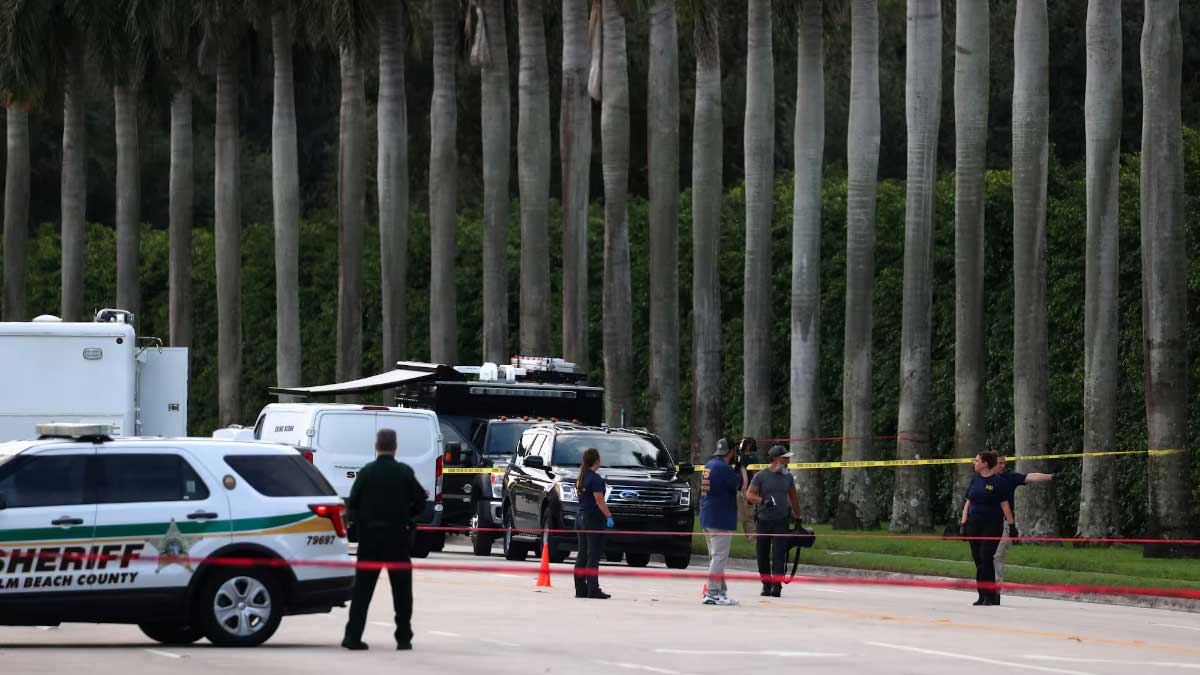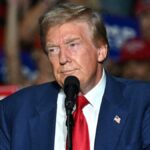- Home
- Billionaires
- Investing Newsletters
- 193CC 1000
- Article Layout 2
- Article Layout 3
- Article Layout 4
- Article Layout 5
- Article Layout 6
- Article Layout 7
- Article Layout 8
- Article Layout 9
- Article Layout 10
- Article Layout 11
- Article Layout 12
- Article Layout 13
- Article Layout 14
- Article Sidebar
- Post Format
- pages
- Archive Layouts
- Post Gallery
- Post Video Background
- Post Review
- Sponsored Post
- Leadership
- Business
- Money
- Small Business
- Innovation
- Shop
Recent Posts
Trump Blames Biden and Harris for Assassination Attempt

Former President Donald Trump made a dramatic claim on Monday, asserting that the suspected assassination attempt against him, which occurred the previous day, was a direct consequence of the rhetoric employed by President Joe Biden and Vice President Kamala Harris. This accusation has intensified the political debate, with Republicans seizing the opportunity to shift focus from their past criticisms to a new narrative that challenges the Democratic party’s handling of political violence.
In a revealing interview with Fox News Digital, Trump alleged that Ryan Wesley Routh, the individual suspected of attempting to assassinate him, was driven to action by the inflammatory rhetoric of Biden and Harris. Trump emphasized that Routh was influenced by their frequent characterization of him as a “threat to democracy.” This phrase, commonly used by Democrats, has been employed to describe Trump’s involvement in the January 6 Capitol riots and his efforts to dispute the results of the 2020 presidential election. According to Trump, Routh’s actions were a direct result of these accusations, which he believes created a hostile environment leading to the assassination attempt.
“Their rhetoric is causing me to be shot at,” Trump declared, referencing the dramatic incident in which Secret Service agents fired at Routh as he allegedly prepared to shoot Trump while the former president was on the golf course at his Palm Beach property. The Secret Service’s decisive action prevented what could have been a devastating attack. The incident underscores the high-stakes nature of presidential security and the potential consequences of charged political discourse.
Routh, a 58-year-old with a significant criminal record, had previously expressed his disdain for Trump. In a self-published book, Routh criticized Trump’s policies, particularly those related to the Middle East, and labeled him with derogatory terms such as “idiot,” “buffoon,” and “fool.” Routh had also expressed dissatisfaction with Trump’s presidency, claiming that Trump’s policies inadvertently aided Russia’s military actions against Ukraine. This critical stance adds a complex layer to the investigation, suggesting that personal grievances and political views may have influenced Routh’s alleged attempt on Trump’s life.
The Federal Bureau of Investigation (FBI) is treating the incident as an assassination attempt, though they have yet to reveal a clear motive. In his book, Routh controversially justified the act of violence against Trump, stating, “You are free to assassinate Trump as well as me for that error in judgment.” This disturbing declaration highlights the potential dangers posed by extremist rhetoric and its impact on individuals who may be predisposed to violence.
In response to the alleged assassination attempt, both Biden and Harris have publicly condemned the act and expressed relief that Trump was unharmed. They have called for calm and emphasized the importance of allowing the legal system to address the situation appropriately. Their statements are aimed at distancing themselves from the violent act and reinforcing their commitment to protecting the safety and security of all individuals, regardless of political affiliation.
Trump’s response to the incident extended beyond the immediate attack, as he took to Truth Social to criticize his political opponents. He denounced the “rhetoric, lies” propagated by Harris and accused the media and legal system of waging a concerted effort to undermine his political career. Trump’s statement pivoted to a broader critique of immigration policy, repeating his controversial claims about illegal immigrants, which he described as “terrorists, criminals and mentally insane.” This shift in focus reflects Trump’s strategy of using high-profile incidents to reinforce his political narratives and rally his base.
President Biden has also weighed in on the need for enhanced security for former presidents, noting that they receive less protection compared to sitting presidents. This call for increased security comes amid bipartisan support for bolstering protections for former leaders, highlighting the broader implications of the incident for presidential security protocols.
Routh has been charged with two federal firearm offenses: possession of a firearm by a convicted felon and possession of a firearm with an obliterated serial number. The dramatic sequence of events unfolded when Secret Service agents detected a rifle protruding from the foliage near the fairway of Trump’s golf course, about 400 yards away from the former president. Agents responded quickly, firing at Routh and evacuating Trump to safety in an armored vehicle. Routh fled the scene, leaving behind an AK-47-style rifle, two backpacks, and a GoPro camera. Authorities later used Routh’s license plate to track him down and arrest him, adding to the complexity of the investigation.
This incident marks the second suspected assassination attempt against Trump in just over two months. In July, a gunman shot Trump in the ear during a rally in Butler, Pennsylvania, resulting in the death of a bystander and injuries to two others. The repeated threats against Trump underscore the volatile nature of contemporary political environments and the challenges facing law enforcement and security agencies in safeguarding public figures.
As the investigation continues, the implications of this incident for political discourse, security measures, and the upcoming 2024 presidential election remain to be seen. The event has intensified the already charged political climate, highlighting the urgent need for addressing the impact of rhetoric on political violence and ensuring the safety of all individuals involved in the democratic process.
Recent Posts
Categories
- 193cc Digital Assets2
- 5G1
- Aerospace & Defense44
- AI32
- Arts3
- Banking & Insurance11
- Big Data3
- Billionaires230
- Boats & Planes1
- Business309
- Careers13
- Cars & Bikes66
- CEO Network1
- CFO Network17
- CHRO Network1
- CIO Network1
- Cloud10
- CMO Network18
- Commercial Real Estate7
- Consultant1
- Consumer Tech157
- CxO1
- Cybersecurity54
- Dining1
- Diversity, Equity & Inclusion4
- Education7
- Energy8
- Enterprise Tech29
- Events11
- Fintech1
- Food & Drink2
- Franchises1
- Freelance1
- Future Of Work2
- Games135
- GIG1
- Healthcare75
- Hollywood & Entertainment158
- Houses1
- Innovation37
- Investing2
- Investing Newsletters4
- Leadership65
- Lifestyle10
- Manufacturing1
- Markets20
- Media184
- Mobile phone1
- Money13
- Personal Finance2
- Policy544
- Real Estate1
- Research6
- Retail1
- Retirement1
- Small Business1
- SportsMoney24
- Style & Beauty1
- Success Income1
- Taxes2
- Travel10
- Uncategorized6
- Vices1
- Watches & Jewelry2
- world's billionaires200
Related Articles
Musk and Ramaswamy Push $2 Trillion Federal Cuts via DOGE
Billionaires Elon Musk and Vivek Ramaswamy, co-leads of the Trump administration’s proposed...
By 193cc Agency CouncilNovember 23, 2024Alphabet Shares Fall 5% as DOJ Seeks Chrome Sale
Shares of Alphabet, the parent company of Google, dropped more than 5%...
By 193cc Agency CouncilNovember 22, 2024Carr’s FCC Nomination and Musk’s Potential Gains
President-elect Donald Trump has nominated Brendan Carr to lead the Federal Communications...
By 193cc Agency CouncilNovember 19, 2024Musk Joins Trump’s Call with Ukraine’s Zelensky
Billionaire Elon Musk played an unexpected role in a call between President-elect...
By 193cc Agency CouncilNovember 9, 2024















Leave a comment